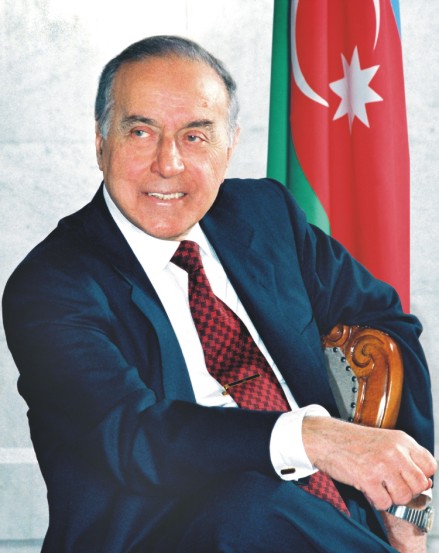
AZERBAIJAN EXPANDS COMMITMENT TO NATO TROOPS IN AFGHANISTAN
Publication: Eurasia Daily Monitor Volume: 5 Issue: 180
By:

Last month’s confrontation between Russia and Georgia over South Ossetia and Abkhazia had an immediate impact on Georgia’s neighbor Azerbaijan, highlighting the vulnerability of its oil exports to hostile military action. Azeri oil exports through Georgia, already diminished by the August 5 closing of the Baku-Tbilisi-Ceyhan (BTC) pipeline, now saw its other export options through Georgia via the Baku-Supsa line and Kulvei oil terminal shut down. Azerbaijan was forced back to using the old Baku-Novorossiysk Transneft pipeline that the BTC had been constructed to circumvent and, in a move that surprised many specialists, sent 200,000 tons of oil eastward to Iran before a cease-fire was reached.
Many analysts, in both East and West, attribute Georgia’s eagerness to join the North Atlantic Treaty Organization as a major underlying cause of the conflict. While Azerbaijan has also been eager to deepen its relationship with NATO, its approach to both the alliance and the United States has been much more nuanced, muted, and less confrontational toward Russia than Georgia’s policies. Like Georgia, Azerbaijan has also supported foreign peacekeeping efforts and U.S. initiatives in an effort to promote deeper ties with Washington, although at much lower troop levels.
Both Georgia and Azerbaijan have been enthusiastic participants in NATO’s Partnership for Peace (PFP) program since its inauguration in 1994. NATO defines PFP as “a program of practical bilateral cooperation between individual partner countries and NATO. It allows partner countries to build up an individual relationship with NATO, choosing their own priorities for cooperation.” On March 23, 1994, Georgian Foreign Minister Aleksandr Chikvaidze signed the PFP framework document; six weeks later, on May 4, Azeri President Heydar Aliyev also initialed the agreement (www.nato.int/pfp/sig-cntr.htm). Since then Azerbaijan has participated in every PFP initiative and program. Like Georgia, Azerbaijan has sent military contingents, though much smaller than Tbilisi’s, to Iraq, where they remain.
On August 14, 2003, The UN Security Council passed Resolution 1500, establishing the United Nations Assistance Mission for Iraq (UNAMI). On the same day, 151 soldiers from the Azeri army’s 112th brigade left for Iraq (Coalition Bulletin, Volume #14, July 2004). The Azeris were initially sent to the northern Iraqi city of Hadid to provide security for the local Turkmen population and guard important sites, but they were subsequently shifted to provide security for the Haditha Dam complex in western Iraq, which supplies Iraq with 30 percent of its electricity, and for a nearby U.S. Marine camp. (Azerbaidzhanskoe Gosudarstvennoe Telegrafnoe Agenstvo, July 22). According to Azerbaijan’s Defense Ministry, Azerbaijan now has 88 troops in Iraq. The most recent troop rotation took place on July 4 (Azerbaidzhanskoe Gosudarstvennoe Telegrafnoe Agenstvo, July 4).
Georgia’s first peacekeeping contingent deployed to Iraq, consisting of 70 military medical personnel and an engineer platoon, was sent to Tikrit in August 2003 (The Georgian Times, April 14). In 2005 Georgia dispatched 300 Special Forces troops who operated under U.S. command in Baquba and guarded two bridges as well as the American Forward Operating Bases Caldwell, Warhorse, and Gabe. The number of Georgian troops rose to 850 in 2006 and 2,000 in July 2007, when Georgia’s peacekeeping presence in Iraq became the third-largest foreign force there. After hostilities broke out with Russia on August 10 and 11, the U.S. Air Force, using 16 C-17 flights, shuttled all 2,000 Georgian troops and their supplies back to Georgia. According to Lieutenant General Gary North, commander of U.S. Air Forces Central, the airlift followed an August 8 request from Tbilisi for the troops’ return (Army Times, August 13).
While many analysts believe that in the wake of Russia’s conflict with Georgia, former Soviet republics will be more hesitant to involve themselves militarily with Western, particularly American, initiatives, Baku intends to double its number of peacekeeping troops in Afghanistan from 45 to 90, according to the Majlis defense and security standing commission head Ziyafet Askerov (Agentstvo Azeri-Press September 17). What is most notable about the draft law on “The status of Azerbaijani troops carrying out peacemaking missions abroad” is that Azeri President Ilham Aliyev himself is introducing the bill (Interfax-Agentstvo Voyennykh Novostei, September 17).
In November 2002 Azerbaijan sent a force to cooperate with the International Security Assistance Force (ISAF) in Afghanistan consisting of 21 soldiers, one officer and one NCO, becoming the first Commonwealth of Independent States member to contribute troops to peacekeeping operations there (www.centcom.mil/en/countries/coalition/azerbaijan/).
Nearly two years later, in September 2004, Georgia sent 100 peacekeepers to assist the ISAF, where they served as part of a German peacekeeping force and protecting strategic sites; but the troops remained only until December (ITAR-TASS, April 4). The issue of Georgian troops for Afghanistan remained dormant until early 2008, when Georgian President Mikheil Saakashvili suggested at the April NATO summit in Bucharest that Georgian instructors could be sent to Afghanistan to train Afghan National Army soldiers.
Subsequently, in July Tbilisi floated the idea of dispatching troops to Afghanistan, when Deputy Defense Minister Batu Kutelia said that Georgia would send 400 peacekeepers to Afghanistan by the end of the year, but the military operations in South Ossetia precluded their deployment (ITAR-TASS, July 22). As of September 1, a single Georgian military official remained attached to the ISAF (www.nato.int/isaf/docu/epub/pdf/isaf_placemat.pdf).
Baku’s and Tbilisi’s policies toward foreign military involvement are differentiated by both their size and tone. Perhaps the most telling example of the Caucasian nations’ differing approaches to NATO membership was summed up by NATO Secretary General’s Special Representative for South Caucasus and Central Asia Robert Simmons’ comments in June at a press conference in Baku. When asked what prevented Azerbaijan from joining NATO, Simmons replied that the issue had not been discussed by U.S. and Azeri officials (Interfax-Agentstvo Voyennykh Novostei, June 30).
On September 18 Azerbaijan’s Defense Ministry spokesman Lieutenant Colonel Eldar Safarov, after telling journalists that over 700 Azerbaijani servicemen had attended 200 international events since January, noted simply, “We are continuing our cooperation with NATO” (Agentstvo Azeri-Press, September 18).
While some analysts might characterize Azerbaijan’s methods and troop commitments as too modest and self-effacing, as yet none of its peacekeepers deployed abroad has had to be returned home to defend the country. If a conflict again erupts between Georgia and Russia, Baku will again face the possibility of its oil exports being diminished or cut off completely, and this overriding concern introduces an element of pragmatism into Azerbaijan’s evenhanded approaches to both Moscow and Washington.




